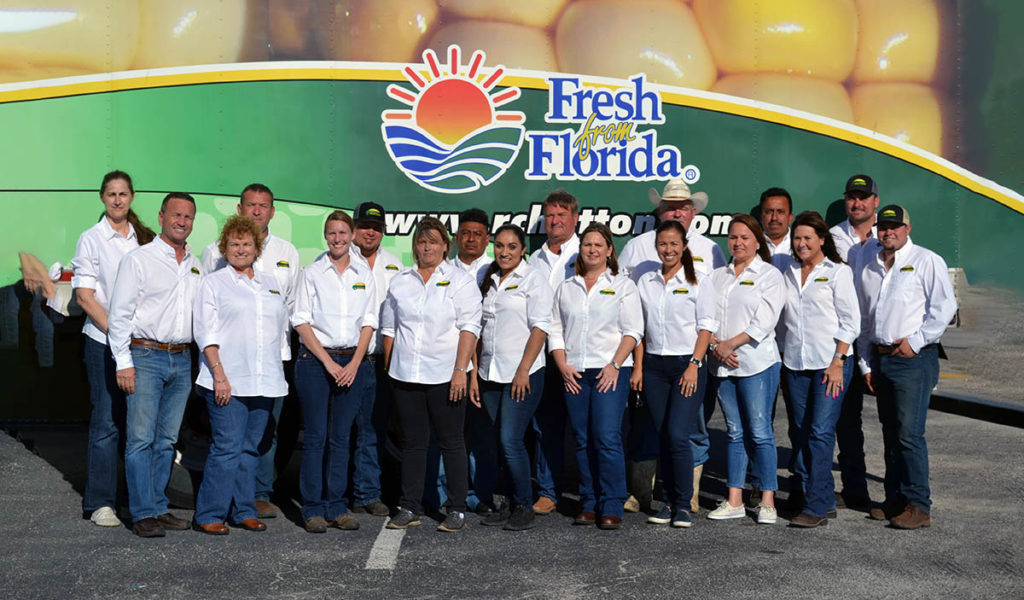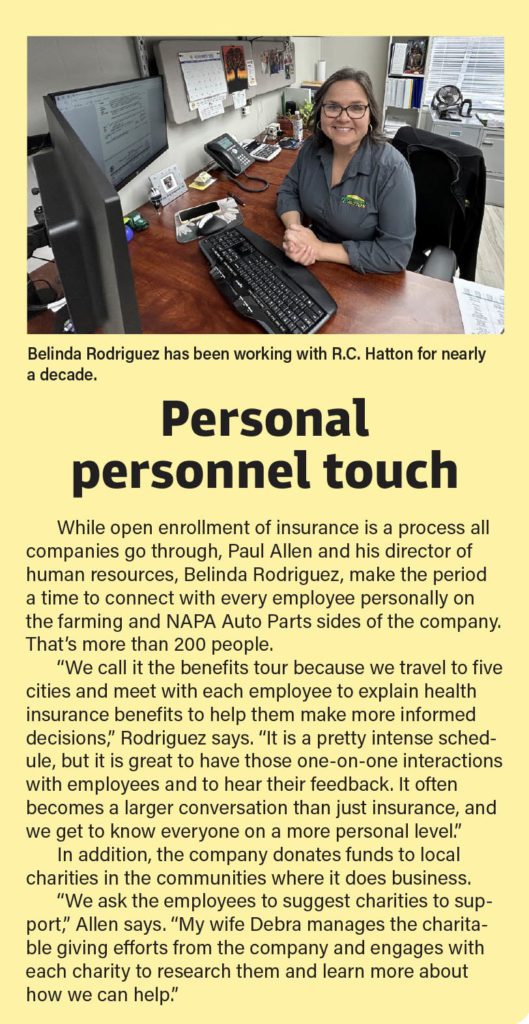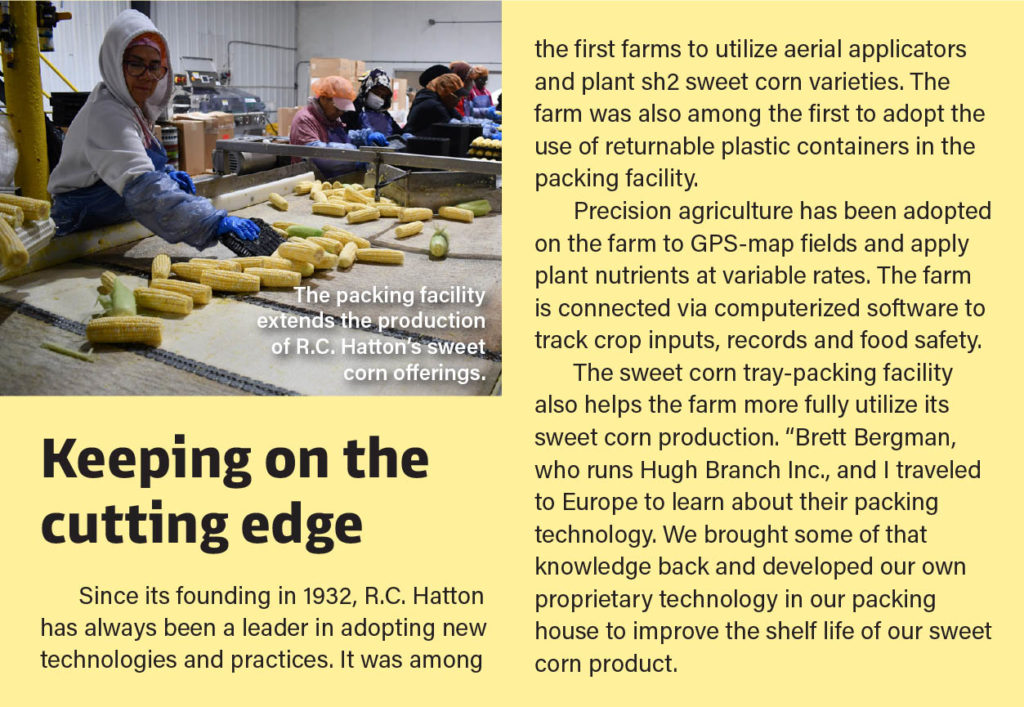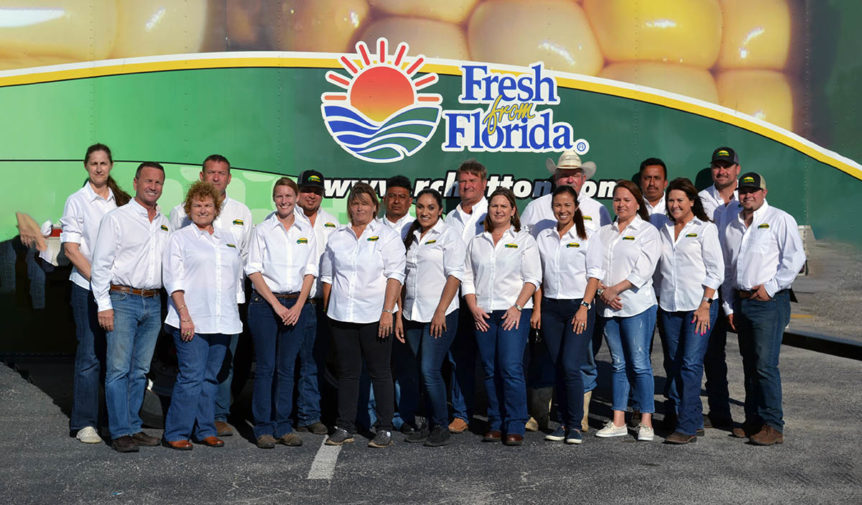By Frank Giles

Paul Allen developed an appreciation for hard work and farming at an early age. After school, he’d head to the South Bay Growers packing facility in South Bay, Florida, to work for a few hours cleaning celery boxes. There he observed the lifeblood of the Everglades Agriculture Area in action. Farming drives the economy of the region that spreads across hundreds of thousands of acres in South Florida.
Allen’s father also farmed in the region, so he grew up with the profession and its people. Fast forward to today. Allen now is a part owner of the packing facility where he cleaned celery boxes as a kid. He credits his faith and the people around him for his good fortune.
“God has been good to us,” Allen says. “Our farm and our company is all about our people — taking care of them and supporting the communities we farm and do business in.”
Sustainability is a buzzword in agriculture that is often wrapped up in production, expenses, profitability, regulations and markets, but Allen believes sustainability starts with the farmers, their families and employees who grow the food supply.
Mentee to Mentor
From cleaning celery boxes, Allen worked his way into a full-time job with South Bay Growers as a young man. In 1984, he made a move that would define his career and life in agriculture. He was hired by Roger Hatton, owner of R.C. Hatton Farms.

“I would not be where I am today without Roger Hatton. It was a mentor relationship, but he gave me freedom to grow the business and try new things,” Allen says. “He was an entrepreneur and a very talented man. I learned a lot from him.”
As farm manager, Allen oversaw increasing acreage of core crops and eventually a second side of the business, a chain of NAPA Auto Parts stores in South Florida, which now numbers 17 locations. Today, the farm produces between 11,000 to 12,000 acres of sweet corn in Florida and Georgia. Green beans, cabbage and sugarcane are also grown on the farm.
As the working relationship and partnership between Hatton and Allen grew, Hatton made an offer to allow Allen to buy into the company.
“At the time, I didn’t want to buy in because my kids were still young. In 1977, it snowed all the way down to Miami. In that freeze, my father lost everything on the farm,” Allen says. “That had a big impact on our family. Once my kids got a little older, I decided to take the plunge and buy into the company and become co-owner of the farm.”
Roger Hatton passed away in May 2022. In the company headquarters, there are many photos and memorabilia to remind everyone of Hatton’s legacy and others who came before and paved the way for future generations.
Allen has placed an emphasis on developing future leaders in the company. His son, Jonathan Allen, manages the farm’s vegetable production. Several other younger staff have moved into prominent leadership roles in the business.
“I grew up on the farm watching and learning from how my dad did things and how the farm operates,” Jonathan says. “I started working full time in 2005 and worked my way up from field work things like driving tractors to managing the vegetable side of the farm. I am taking what I have learned along the way and applying some of my own new ideas that hopefully will make the farm better.”
Emerging Leaders
“The program not only allows you to make great connections with your fellow classmates, it also gives you a better perspective about how other farms operate and deal with challenges,” Jonathan says.
Maria Cavazos is another employee who has worked her way up through the ranks at R.C. Hatton. She, too, is a graduate of the Emerging Leader Development Program.
“I started working with the company 15 years ago in a clerical position at the packinghouse,” she says. “I moved up over the years and now serve as the company’s chief financial officer. The Emerging Leader Development Program was a great experience. When you are in the office behind a computer like I am, it was great to get out and learn about all the aspects of farming all the way to the consumer.”
Company comptroller Josh Hancock also graduated from the program in 2023.
Allen has been involved with FFVA for many years. He served as its chairman from 2018 to 2020. Like with the farm, he sees leadership transition as important in farm advocacy organizations.
“Transition and succession planning is so important,” Paul says. “When I was serving as FFVA chairman, there was transition happening within that organization. Mike Joyner was just coming in as the new president after Mike Stuart’s retirement. Mike and I really worked and set forth a plan for transition of both FFVA staff and its board of directors. That was one of the primary reasons the Emerging Leader Development Program was established, to prepare our future board members. The leadership class is unbelievable. When people come through that program, they just blossom and have a whole new sense of being a part of agriculture.”
Jonathan now serves on the FFVA board. In addition, 10 alumni of the program are serving or have served on the FFVA board or as directors at large.
“Now, after more than a decade of nurturing 140-plus individuals through the Emerging Leader Development Program, FFVA is seeing a new generation of leaders develop. Jonathan is a shining example of the success we have seen from this program,” says Joyner. “Having gone through the program more than a decade ago, we are proud to say Jonathan is now serving at the highest level within FFVA, as a member of the board of directors.”
Going Vertical
Because retail buyers like Publix, which is R.C. Hatton’s largest customer, seek continuity in quality and supply, Allen says vertical integration has been a key part of the farm’s success.
“It is important to deliver the best price and quality you can. When you are vertically integrated, that is more possible because you are in control and not dependent on others to deliver those two things,” he says.
In addition to growing sweet corn, the farm has its own tray packing line (called Performance Packing), storage facilities and trucking line to deliver product.
Looking Forward
What will it take to keep farms like R.C. Hatton viable over the next decade? Allen says securing his team will be key. The farm has also moved to the H-2A program to help fill the labor gap.
“We are blessed to have the next generation of leaders in our company stepping up,” he says. “We are doing all we can to take care of them and keep glue in their seats to secure our future through succession to the younger generation.”











